Related Research Articles
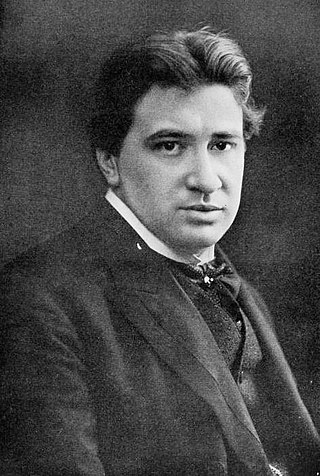
Ermanno Wolf-Ferrari was an Italian composer and teacher. He is best known for his comic operas such as Il segreto di Susanna (1909). A number of his works were based on plays by Carlo Goldoni, including Le donne curiose (1903), I quatro rusteghi (1906) and Il campiello (1936).
20th-century classical music is art music that was written between the years 1901 and 2000, inclusive. Musical style diverged during the 20th century as it never had previously, so this century was without a dominant style. Modernism, impressionism, and post-romanticism can all be traced to the decades before the turn of the 20th century, but can be included because they evolved beyond the musical boundaries of the 19th-century styles that were part of the earlier common practice period. Neoclassicism and expressionism came mostly after 1900. Minimalism started later in the century and can be seen as a change from the modern to postmodern era, although some date postmodernism from as early as about 1930. Aleatory, atonality, serialism, musique concrète, and electronic music were all developed during the century. Jazz and ethnic folk music became important influences on many composers during this century.
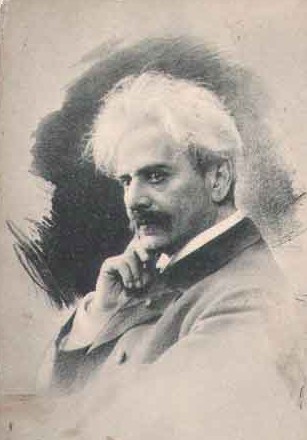
David Popper was a Bohemian cellist and composer.

Neoclassicism in music was a twentieth-century trend, particularly current in the interwar period, in which composers sought to return to aesthetic precepts associated with the broadly defined concept of "classicism", namely order, balance, clarity, economy, and emotional restraint. As such, neoclassicism was a reaction against the unrestrained emotionalism and perceived formlessness of late Romanticism, as well as a "call to order" after the experimental ferment of the first two decades of the twentieth century. The neoclassical impulse found its expression in such features as the use of pared-down performing forces, an emphasis on rhythm and on contrapuntal texture, an updated or expanded tonal harmony, and a concentration on absolute music as opposed to Romantic program music.
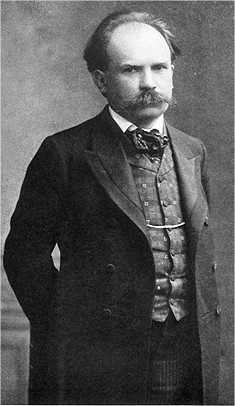
EugenFrancis Charles d'Albert was a Scottish-born pianist and composer who emigrated to Germany.

Sir Arthur Somervell was an English composer and educationalist. After Hubert Parry, he was one of the most successful and influential writers of art song in the English music renaissance of the 1890s–1900s. According to Michael Hurd, his most important work is found in the five song cycles, particularly his settings of Tennyson in Maud (1898) and Housman in A Shropshire Lad (1904).
Bernd Alois Zimmermann was a German composer. He is perhaps best known for his opera Die Soldaten, which is regarded as one of the most important German operas of the 20th century, after those of Berg. His eclectic music, which employs a wide range of techniques including dodecaphony and musical quotation, encompasses the styles of the avant-garde, serial, and postmodern.
Benjamin Lees was an American composer of classical music.

Salomon Jadassohn was a German pianist, composer, and teacher at the Leipzig Conservatory.
Samuel Hans Adler is an American composer, conductor, author, and professor. During the course of a professional career which ranges over six decades he has served as a faculty member at both the University of Rochester's Eastman School of Music and the Juilliard School. In addition, he is credited with founding and conducting the Seventh Army Symphony Orchestra which participated in the cultural diplomacy initiatives of the United States in Germany and throughout Europe in the aftermath of World War II. Adler's musical catalogue includes over 400 published compositions. He has been honored with several awards including Germany's Order of Merit – Officer's Cross.
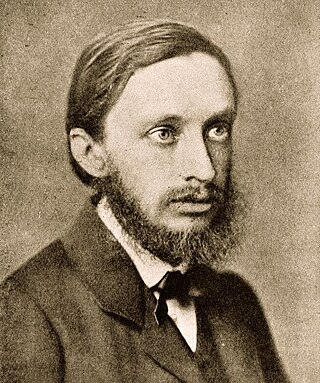
Hermann Gustav Goetz was a German composer who spent much of his career in Switzerland. He is best known for his 1872 opera Der Widerspänstigen Zähmung, based on Shakespeare's The Taming of the Shrew.

Bernhard Molique was a German violinist and composer.
John Roger Smalley was an Anglo-Australian composer, pianist and conductor. Professor Smalley was a senior honorary research fellow at the School of Music, University of Western Australia in Perth and honorary research associate at the University of Sydney.
Vronsky & Babin were regarded by many as one of the foremost duo-piano teams of the twentieth century. Vitya Vronsky was born in the Crimean city of Yevpatoria, Russia. Victor Babin was born in Moscow, Russia. They both died in Cleveland, Ohio, United States.
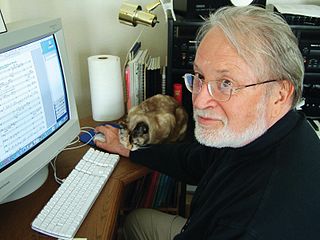
Virko Baley is a Ukrainian-American composer, conductor, and pianist. He was born in Radekhiv in Poland, the only child of Petro (Peter) and Lydia Baley. Petro Baley was sent to Auschwitz concentration camp following the German invasion of Poland in 1939, and he and extended family were relocated to Slovakia. The family was reunited on a farm in Germany towards the end of the war to work as farm laborers, after which they relocated to Munich. From 1947 to 1949, the family lived in a displaced person's camp in Regensburg, Germany.
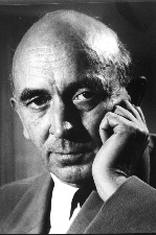
Ernst Pepping was a German composer of classical music and academic teacher. He is regarded as an important composer of Protestant sacred music in the 20th century.

Volker David Kirchner was a German composer and violist. After studies of violin and composition at the Peter Cornelius Conservatory, the Hochschule für Musik Köln and the Hochschule für Musik Detmold, he worked for decades as a violist in the Radio-Sinfonie-Orchester Frankfurt. He was simultaneously the violist in the Kehr Trio founded by his violin teacher Günter Kehr, and a composer of incidental music at the Hessisches Staatstheater Wiesbaden.

Eugene Zador was a Hungarian and American composer.
Erich Bergel was a German trumpet player and conductor.
Detlev Müller-Siemens is a German composer and conductor.
References
- 1 2 Jeremy Siepmann, "Banfield, Volker" in Sadie, Stanley; John Tyrrell, eds. (2001). The New Grove Dictionary of Music and Musicians, 2nd edition. New York: Grove's Dictionaries. ISBN 1-56159-239-0.
- ↑ Faculty for the Summer 2008 Prague International Master Classes listed at the web site of the University of Florida College of Fine Arts.